NK Chats To… Jon Rance
 Hi Jon. Happy publication day. Thank you so much for joining me and for inviting Novel Kicks onto your blog tour. Can you tell me a little about your latest novel, Not Moving Out and what inspired it?
Hi Jon. Happy publication day. Thank you so much for joining me and for inviting Novel Kicks onto your blog tour. Can you tell me a little about your latest novel, Not Moving Out and what inspired it?
Hello, and thank you so much for having me on Novel Kicks! It’s a real pleasure to be here. My new novel, Not Moving Out, comes out on May 15th and I am very excited about it. Set in Brighton, it’s the story of Freya, Joe and their daughter Dolly. Freya and Joe have decided that after twenty years, their marriage is over. The problem is that Dolly still needs to live at home for another six months before she leaves for university, and they can’t afford for either of them to move out. So for six months, they are all forced to live together. The question is, will living together but separated make them both realise things about themselves and their relationship that might save their marriage? There are also various other plotlines that keep things ticking along with the most prominent one being Joe, a once successful but now failed comedy writer, using their new living situation as the basis for a sitcom – without telling Freya about it, of course.
I was inspired to write this book after reading a few articles about couples that wanted to separate, but for financial reasons had to keep living under the same roof. I thought it would be a really interesting dynamic for a romantic comedy.
Which songs would feature on a playlist for this book?
A great question. If you read my previous book, One Hundred Moments Of Us, you’ll know that it had a very strong playlist. I even created a playlist for it on Spotify! There are two Snow Patrol songs in this book. Chasing Cars, which is one of my favourite songs of all time and, You Could Be Happy. Also mentioned in the book are ABBA, so let’s go with Take A Chance On Me because it’s a great song and also the title fits into the theme of the book. In Not Moving Out, Joe is really into 90s Britpop music and so that would feature heavily. Perhaps some Oasis, Blur, Supergrass, and Pulp! The book has that perfect blend of humour, drama, pathos and joy, and I think that would be reflected in the song choices.
What’s your typical writing day like and do you have any writing rituals? How much has this changed since writing your first novel?
I do have a writing routine and it has definitely changed so much since writing my first book. My life when I was writing my first novel, This Thirtysomething Life was very different. I was working full-time, we’d just had our first baby, and writing was something I did when I got a spare five minutes. Which is why it took about 18 months to write that first book! Now I write full-time and my children are teenagers!
I am definitely a morning person. I love to wake up, and once everyone has left the house, I sit down on the sofa – with a cup of tea – and get to work. I can’t work at a desk, it’s too uncomfortable. When I am writing a first draft, I tend to sit down and I write until I have hit my daily target of 2000 words. Sometimes it takes two hours and sometimes five hours. When I am editing, it’s a different pace, and I take more breaks because I don’t need to be in the zone like I do when I am writing a first draft. I always have plenty of tea and I need peace and quiet.
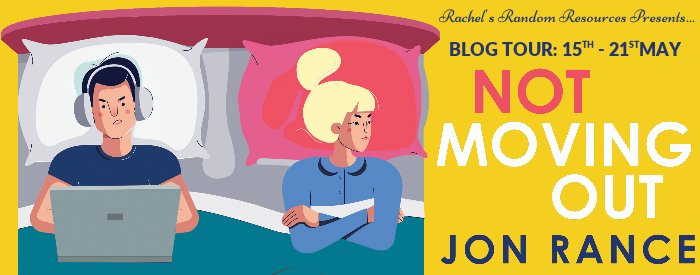 From idea to finished draft, how long does the process take you?
From idea to finished draft, how long does the process take you?
This is a good question and the answer is that it varies for each and every book. I have just finished writing a new book, and from the beginning to the end, it was about four months – although it still needs to be professionally edited so that will make the process longer. This is the quickest I have ever written a book. I would say that typically, a first draft takes about three to four months to write. Before that, I have already spent a few months thinking about it and planning it out. Once the first draft is done, I usually edit for another month or so, and then it is off to an editor. Then, of course, it goes backwards and forwards multiple times to different editors and that process can take another three or four months. So, all in all, I would say the whole process takes about ten months, but like I said, it all depends.
Any advice when approaching editing and research? How do you know when you’ve done enough of both?
Another great question. Personally, my method of writing a book isn’t very efficient. I know that the way I work isn’t something I would advise for others, but it works for me. Our brains are all wired so differently and so you have to do whatever works for you. So for me, I begin with the idea. This is usually a few paragraphs I have written down. Then I begin fleshing it out with characters and locations. I am not lazy exactly, but most of my books are set in places I know really well. Usually London or in this case Brighton. This keeps my research down, and I usually write books set over the last twenty or thirty years, so a time I have lived through. I have pondered writing a historical novel or one set in a different time, and that would require a lot more research. Maybe one day.

Jon’s Writing Space
Advice for editing. Editing is probably the most important part of the process. It is such a different skill than writing. I actually find writing the first draft of the book the easiest part. Usually when I write, it comes out quickly and I can get my 90,000 words done without struggling too much. I have never suffered from writer’s block. However, once you have the novel done, you have to edit and that is when you have to make it shine. Sometimes, if you have written a really good first draft, editing is mostly about making sure the structure is sound, the characters are fleshed out enough, the timeline works, the jokes are funny, the drama connects, and then all the grammar and punctuation is correct. That’s if you have written a really good first draft. Usually, for me at least, the first few edits are brutal. I have used a name twice, or three times, a timeline is off, a whole storyline doesn’t work and needs to be taken out or rewritten completely, a character has some major issues, some of the jokes don’t land and the drama isn’t emotional at all. This is when you earn your money and really get to work. In terms of knowing when it is done. For me it’s when I read it through, probably for about the twentieth time, and don’t feel like I need to make any changes. However, when you work with a publisher and a really good editor, even when you think the book is done, they often have some very different ideas!
What are you currently working on?
I have just finished a novel, and I am working on getting it published. I can’t say much about it other than it is a romantic comedy, and it has what I think is a really cool hook. It is the first book I have written that is set in two different continents. I am about half way through the first draft of another novel, which is going well, but I have had to take a break to work on the marketing for Not Moving Out. One thing you quickly realise when you’re an author is that you are never just working on one project. I am always working on two or three books at once. One is done and I have to market it for publication. Another is done, but needs to go off to a publisher, and I am writing a third. We are always juggling something.
In your opinion, what are the common mistakes aspiring authors make?
I know that I have made many mistakes over the years and this is what I have learnt. The idea is the most crucial part of the writing process. The reason aspiring authors start a book and don’t finish it is because the initial idea wasn’t strong enough. The idea has to be great for the book to work, and also agents and publishers love great ideas. If you’re a really good writer, but the idea for the book isn’t good or it’s cliche then probably no-one is going to want it. Secondly, set your expectations low. I know that when I started writing, I had dreams that I would write a book, get an agent, get a six-figure publishing deal and be set for life. This almost never happens. Even if you manage to secure an agent, get a publishing deal, it doesn’t mean you’ll be able to retire on the proceeds. Writing is hard work, it keeps being hard work, and the money compared to almost every other career you want to do, will be less. Saying all that, I do love it and couldn’t imagine doing anything else. But just don’t expect too much and you won’t be disappointed.
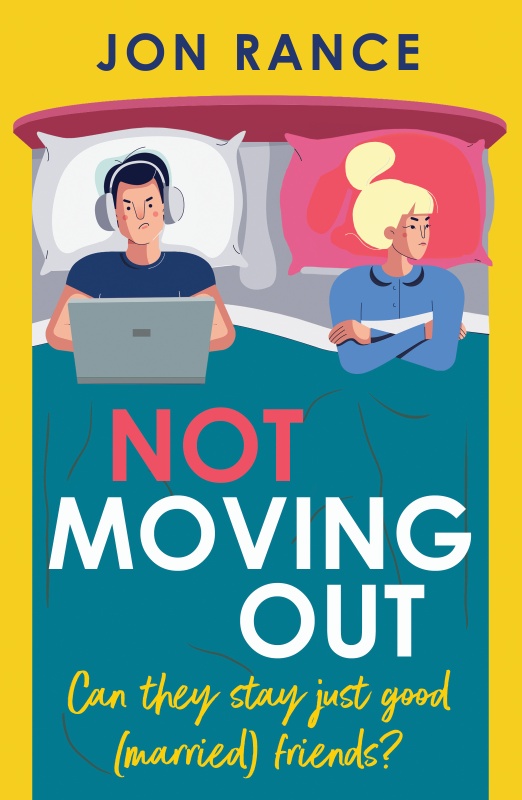 What type of scene do you find it hardest to write?
What type of scene do you find it hardest to write?
The hardest scenes for me to write are big comedy set-pieces. This might come as a surprise because surely an intense emotional scene is more difficult, but actually I generally find that writing a dramatic scene is easier because it’s all about getting inside the character’s minds. Writing emotion, for me at least, is far easier than trying to be funny. Writing something funny is always the hardest challenge. I could write a serious dramatic book, but try putting in a big comedy scene, and suddenly you really have to start working on it in such a different way. Writing emotions is more intuitive, you can feel it, imagine how it feels, but comedy is about structure and the careful choice of words, and creating characters that allow comedy to flow. In my opinion, writing comedy is far harder than writing drama.
Which fictional character would you like to meet and why?
Gosh what a hard question. There are so many fictional characters from books, television and films, it is almost impossible to answer. I tend to lean towards comedy characters because that has always been my favourite genre of just about everything. Growing up, comedy was my passion when it came to television shows, films, and even reading. So, if I had to pick one fictional character to meet, it would probably be Del Boy from Only Fools and Horse. A drink in The Nag’s Head or a fry-up at Sid’s Cafe. I know that isn’t a very high-brow answer, but it was the first one that came to mind. Plus, you know Del Boy would be great company and all the other characters from that show were so well written. I think it’s something that I definitely try to get into my books. Having really funny, layered, and well thought out secondary characters is so important to comedy. Often it’s a minor character in a comedy that provides the most laughs like Trigger in Only Fools And Horses.
What’s your favourite word and why?
I am very fond of words like trickle, trundle, and Whimple, and I do love the word fuck, and probably use it far too often in my books. I love mellifluous, the way it feels when you say it or ooze, when you really drag out the oo so it sounds more like ooooze. I love words that have a hard t like twat. I love brolly because it’s so English, and fiddlesticks, chuffed, and jiffy for the same reason. I think my favourite word though is tea because I bloody love tea, and just hearing the word brings a smile to my face.
Would You Rather –
Have the ability to see into the future or be able to visit the past?
Definitely visit the past. I absolutely love history and the future terrifies the life out of me.
Have the ability to move things with your mind or read minds?
Move things with my mind. I think being able to read minds would send me insane.
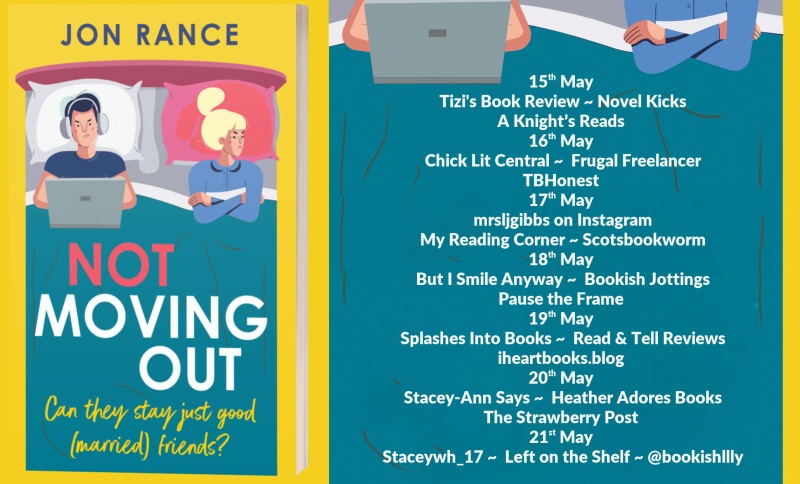 Sing or dance to your favourite song for the rest of your life?
Sing or dance to your favourite song for the rest of your life?
Dance because I can’t sing.
Have money or power?
Money. I have no desire for power.
Have an endless summer or winter?
I do love winter but probably summer.
Drink tea or coffee?
Always tea! Although I do love my morning oat flat white!
See the movie or read the book first?
Read the book.
Read a Paperback or eBook?
Definitely read the paperback. Although sadly I do read more eBooks these days because it’s easier and cheaper.
Would you rather have magical powers here on earth or live in a magical place without powers?
Magical powers on earth! I’d love the ability to teleport anywhere on Earth! I love travelling but hate flying, so to get anywhere in a second would be perfect. Thank you so much for the brilliant interview!
About Jon Rance –
 Jon Rance writes novels about love, family, relationships, and all the messy bits in between. His novels have been described as hilarious, romantic, and perfect for fans of Mike Gayle and Beth O’Leary. His first two books, This Thirtysomething Life and Happy Endings, were published by Hodder and Stoughton. Since then, he has written numerous novels including, Sunday Dinners, Dan And Nat Got Married, and The Worst Man. Jon signed a two-book deal with Hera in 2024 and the first novel, One Hundred Moments Of Us, was published in August 2024. The second book, Not Moving Out, a second chance rom com, will be published in May 2025.
Jon Rance writes novels about love, family, relationships, and all the messy bits in between. His novels have been described as hilarious, romantic, and perfect for fans of Mike Gayle and Beth O’Leary. His first two books, This Thirtysomething Life and Happy Endings, were published by Hodder and Stoughton. Since then, he has written numerous novels including, Sunday Dinners, Dan And Nat Got Married, and The Worst Man. Jon signed a two-book deal with Hera in 2024 and the first novel, One Hundred Moments Of Us, was published in August 2024. The second book, Not Moving Out, a second chance rom com, will be published in May 2025.
Jon grew up in England and studied English Literature at Middlesex University, London, before travelling the world and meeting his American wife in Australia. He now lives in California with his wife, two kids, and a dog called Pickle, where he writes full-time and drinks far too much tea.
Say hello to Jon via Instagram and X.
*****
About Not Moving Out –
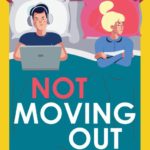 Spouses Without Benefits – how can you move on without moving out?
Spouses Without Benefits – how can you move on without moving out?
Freya and Joe’s marriage has fizzled its way to the end, but for financial reasons, and to support their daughter in her final year of school, they decide they need to keep living together for six months.
They know it won’t be easy, but for Joe at least, it provides creative rewards: a struggling sitcom writer, he has found his new project. Why not write about his own situation? And the network loves it.
There is just one problem – Freya doesn’t know.
Can Freya and Joe navigate the six months together and might they find out something new about their relationship?
A relatable second-chance romcom perfect for fans of Mike Gayle and Beth O’Leary.
Not Moving Out was released by Canelo Hera on 15th May 2025. Click to buy on Amazon UK, Waterstones, Apple Books, Kobo, Barnes & Noble and Amazon US.

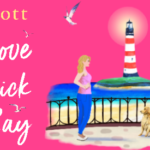

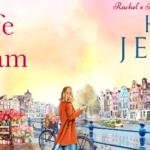

Leave a Reply